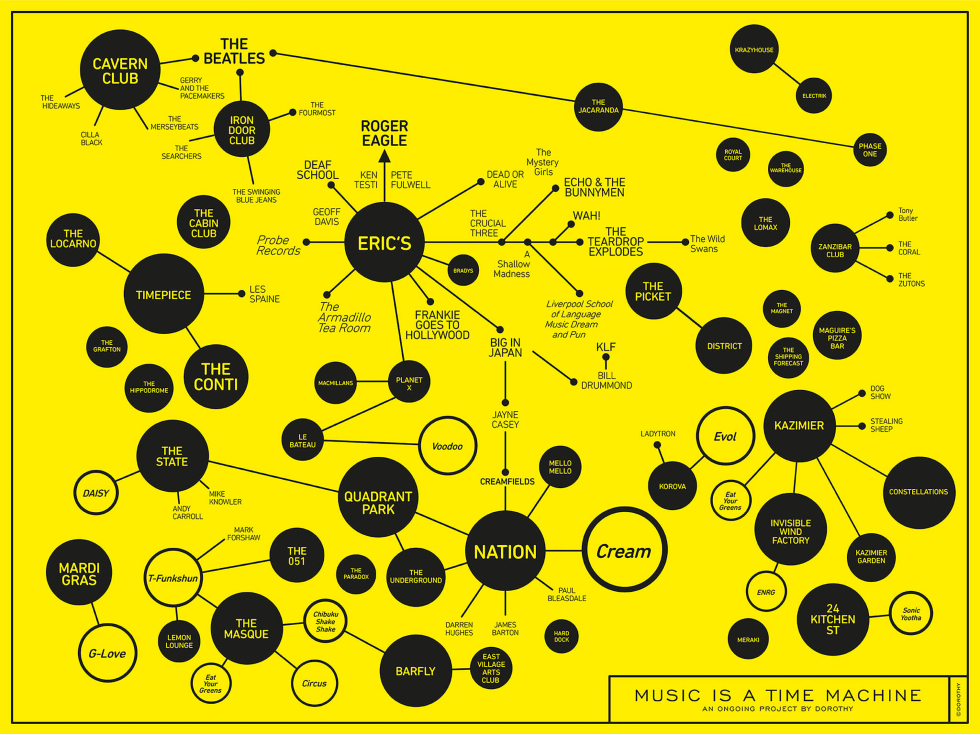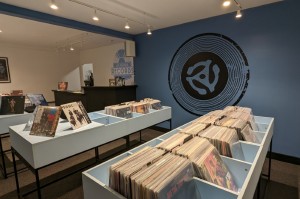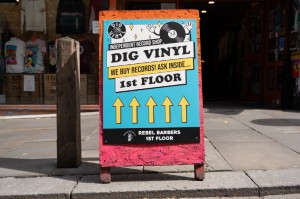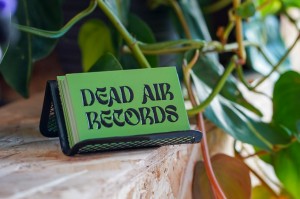Isolation Nation:
Music is a Time Machine

“If music is a time machine, the clubs, bars, and many other dives we frequented in our youth, are cathedrals of memory.” Mike Pinnington reflects on the haunting power of songs encountered in our formative years…
Earlier in the year, I saw that somebody had ‘built’ Liverpool rite-of-passage club, The Krazy House, in Minecraft and posted it to YouTube. Comments posted below include: “Make the floors stickier and get some blue WKD bottles and you’ve nailed it”; “This the BEST thing I’ve seen during lockdown. Bravo”; “Absolutely amazing! So much nostalgia for me… and sadness that it’s gone”. If you’ve ever stepped through the K’s hallowed doors and rocked up those stairs, you should pay it a virtual visit – former patrons who happen to be fans of Papa Roach will be particularly pleased. This peculiar little discovery came as no surprise to me. In fact, it was just the latest in an ever-lengthening line of connected serendipities too frequent to be coincidences, hitting me about the head and launching me back through time to the places, people and songs of my youth. It was bordering on the uncanny. As such, I’ve been thinking a lot about the nature of nostalgia recently.
It’s not been a universally gentle experience; nostalgia’s closely related cousins, wistfulness, longing, and loss, have torn indiscriminately through the fabric of the present, becoming palpable. Echoes of my past came invariably via music: songs that meant something to me in my formative years, and, therefore, still do, were playing with uncommon frequency in coffee shops and bars, in newsagents and on the radio. While it was great to hear the likes of Teenage Fanclub for what felt like (and probably was) the first time in years, it was also almost too much. I was being haunted by a younger, thinner, prettier me, a doppelganger in Dorian Grey clothes. If I was receptive to these songs on first hearing, today I am vulnerable to their seductive pull. They stand, monolithic, as symbols of dreams and futures that once lay ahead. Today, of course, such futures are less likely. Certain possibilities have narrowed or disappeared altogether. I will never be in a Brit Pop band (small mercies).
Something clearly had to be done. Ultimately, not so much exorcising the ghost as rushing to it with open arms, in April I wrote about these visitations and made a playlist. I included on it some repeat offenders that kept arriving out of the ether to put time out of joint: songs as spectres of the past. As many have said before, music is a time machine. People also say, erroneously I’d argue in this case, that you should never go back, and it seems to me that these two truisms overlap neatly here. Indulgently listening to my playlist as I write this, Weezer’s The Sweater Song whisks me back to my 17 year-old self, to the sixth form common room where I first heard it on tape, played by friends who brought it in to school. Kung Fu takes me – pogo-ing – to that Ash gig at the Lomax on Cumberland Street, and Pulp’s Do You Remember the First Time to the Mardi Gras, up a dingy alleyway on Bold Street.
Some songs inevitably become bound to people and place and situate us very specifically and vividly in time; ineffably, they summon our former selves as well as those around us, like well-preserved revenants. Let nostalgia do its work: smell the sweetness of the billowing smoke machine; taste the surprisingly palatable £1 bottle of Löwenbräu; see the impossibly beautiful faces of your friends, eyes closed as they dance away, jostling as one amid fellow revellers. Next day, our clothes carry on them the night before: glitter, sweat, the smell of second-hand cigarette smoke and spilt booze. Delicious. If music is a time machine (and I think we’ve pretty much established the facts of this), the clubs, bars, and many other dives we frequented in our youth, are also cathedrals of memory. These places, now extant or otherwise, are repositories of all our futures – lost or otherwise. In hauntological (and, in many cases, literal) terms, they are no longer. They remain, however, in our minds and our memories. They’re full to the brim with stories and lives lived urgently and in the moment; the kind of lives that only the heady mix of music, cheap alcohol, volatile emotions and nascent yet potent sexualities can produce.
It is fair to think of such places as nothing less than totems, then – albeit ones with sticky floors and scuzzy toilets, but totems, nonetheless. A club I spent too many great Saturday nights in to recall is now a vegetarian restaurant. But, even having enjoyed meals there, in my mind’s eye it will always be Le Bateau, home to friends dancing wildly, laughing, kissing and crying; to Le Tigre’s Decpetacon, a bunch of songs by The Strokes, Such Great Heights by The Postal Service, The Rat by The Walkmen, something misremembered by Fischerspooner, Justice vs. Simian’s We Are Your Friends and countless others besides. With coronavirus (along with its frenemy, social distancing) and subsequent lockdowns added into the mix, there is an added frisson to all of this nostalgia. Other bars and venues have since been forced to call it a day (many of you, I’m sure, will have fond memories of Sound Food and Drink, and the Zanzibar to name but two).
Music endures, though, and it helps us to endure too. During these months of uncertainty, it has been a balm. The extra time and – on good days, extra headspace – has allowed me to revisit music more meaningfully, to see it as a tool to contend with the good and the bad. A reliable companion. It unites us, even at a distance (see Tim Burgess’ Twitter Listening Party) and is the portal through which we can visit old friends and old selves. Just as importantly, though, it is a pathway to joy, discovery, and more – the not yet of futures still to be written.
Mike Pinnington
This essay was commissioned by Dorothy for Isolation Nation, an online exhibition calling for creative responses to lockdown. MUSIC IS A TIME MACHINE is an ongoing project by Dorothy mapping some of the often connected venues, bands and artists of Liverpool.





